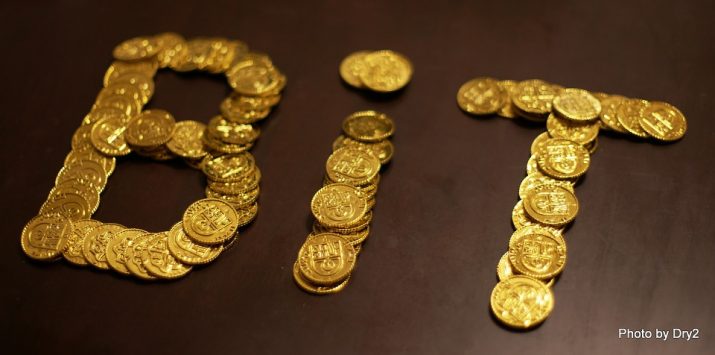
Bitcoin rise due to clueless noobs in South Korea and Japan, analysis confirms: Speculators all hope to buy low and sell high (and they will get burned badly)
Monday, June 19, 2017 by Ethan Huff
http://www.risk.news/2017-06-19-bitcoin-rise-due-to-clueless-noobs-in-south-korea-and-japan-analysis-confirms-speculators-all-hope-to-buy-low-and-sell-high-and-they-will-get-burned-badly.html

Asian investors are going haywire over the prospect of becoming independently wealthy from investing in bitcoin, the popular “crypto” currency that has risen in value by an astounding 150 percent since the beginning of the year. But this decentralized medium of exchange could be in the midst of a giant bubble, which means that many people could end up dead broke, should the bubble eventually burst (which many are suspecting).
According to reports, everyday folks like “Mrs. Watanabe” – a metaphorical name for the archetypal Japanese housewife who seeks to make the best of her family’s savings by investing it – are jumping on the bitcoin bandwagon by the thousands. Not only the Japanese but many South Koreans are investing their life savings into bitcoin, believing it to be the answer to low interest rate woes and flailing economies.
The surge comes after Japanese law was recently changed to recognize bitcoin as an official legal currency. Trading volume on all of the Asia-based exchanges took off after this move, which is driving the price of bitcoin to the upper limits. In South Korea, for instance, bitcoin has been fetching a $400 premium on top of its already inflated value in U.S.-based exchanges – with no end in sight.
“After I first heard about the bitcoin scheme, I was so excited I couldn’t sleep,” one woman by the name of Mutsuko Higo told Reuters during a recent interview. The 55-year-old social insurance and labor consultant from Japan recently bought about $1,800 worth of bitcoin to supplement her retirement savings, in the hopes that it will serve as a failsafe catch net.
“It’s like buying a dream. Everyone says we can’t rely on Japanese pensions anymore. This worries me, so I started bitcoins.” (Related: To keep up with the latest news on bitcoin and where it’s headed in the financial markets, be sure to visit Bitcoin.Fetch.News.)
Bitcoin shouldn’t be used as a speculation instrument
Recognizing the inherent instability of fiat currencies and their propensity towards being devalued and leading to inflation, it only makes sense that folks would want to invest in what they perceive to be more stable things such as bitcoin – even though bitcoin isn’t necessarily all that stable. The other big problem with fiat currencies is that they can be printed endlessly by central bankers because they’re backed by nothing. Bitcoin, on the other hand, is said to have a limited quantity of no more than 21 million “coins.”
Problems arise, however, when too many people enter the bitcoin market simply to get rich rather than to use it for its intended purpose: as a peer-to-peer currency that’s safe from third-party intrusion. And this is exactly what’s happening as many bitcoin purchasers who are flooding the market have absolutely no idea what they’re getting themselves into. As a result, the value of bitcoin is becoming massively inflated due to all of these “newbies” entering the market purely for speculative purposes, and to their own potential demise.
“Trading carries huge risk,” says Leonhard Weese, president of the Bitcoin Association of Hong Kong and a bitcoin investor. Weese says that amateur investors need to be very careful about investing in bitcoin, advising people against speculating in the digital currency unless they really know what they’re doing because it could end up costing them in the end.
“There is no investor protection and plenty of market manipulation and insider trading,” he says, adding that “some of the exchanges cannot be trusted in my opinion.”
Park Hyo-jin, a 27-year-old South Korean man who owns about $2,700 worth of bitcoin admitted to Reuters that the currency isn’t really being used as a currency by people in his country. It’s all speculation, he stated: “I don’t think anybody in South Korea buys bitcoin to use it.”
Sources for this article include:
Tagged Under: Tags: bitcoin, Japan, South Korea




